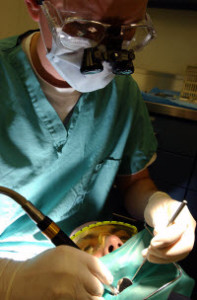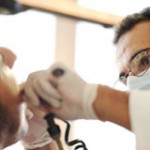Dental emergencies can happen at any time during the day or night. Such emergencies should be treated immediately to save the tooth or teeth involved in it. You should consult a qualified and experienced dentist to treat all types of dental emergencies. This article provides a comprehensive overview of three dental emergencies that need to be treated immediately.
A knocked out tooth or teeth can result from an accident or similar incident. This is one of the most common dental emergencies in Milwaukee that need to be treated immediately. A knocked out permanent tooth can be saved if you act immediately. Follow these steps to save a knocked out permanent tooth or teeth. Make sure you hold the tooth by the top part of it known as the crown. Never touch the bottom part or root of the tooth. Rinse the tooth thoroughly in water. Try to reposition the tooth in the socket. Hold it in place with a clean piece of gauze. If you are unable to replace it, put it in a glass of milk. Go to the nearest dentist’s office immediately. It is important to act fast to save the tooth. If you can go to the dentist within an hour of the accident, you have a good chance of saving the tooth.
Extensive cracks or chips in a tooth require immediate dental attention. It is another dental emergency. Such injuries usually involve the enamel, dentin and even the pulp of your tooth. The pain caused by such a crack may lead to further damage if you do not seek emergency dental attention.
Tissue injuries to the lips, tongue and other soft tissues in the mouth constitute a dental emergency most of the time. If you experience a trauma to the tissues in your mouth, you need to consult the closest dentist’s office for emergency treatment.
The aforementioned article highlights three dental emergencies that need to be treated immediately.

 There are several things which can constitute a medical emergency, including pain, oozing sores and swelling. In some instances, all of these may occur; in others only one of these symptoms may be present. If a tooth or the gum around it is not in significant pain, some of our patients make the mistake of thinking that it is fine. However, if the area is swollen, you need to contact our office immediately.
There are several things which can constitute a medical emergency, including pain, oozing sores and swelling. In some instances, all of these may occur; in others only one of these symptoms may be present. If a tooth or the gum around it is not in significant pain, some of our patients make the mistake of thinking that it is fine. However, if the area is swollen, you need to contact our office immediately. If you have dentures, you know how uncomfortable they can be if they do not fit properly. Loose dentures are difficult to wear, but many patients do not come in to have them properly adjusted. Do not just try to tough it out and make do with a set of ill-fitting dentures. Call our
If you have dentures, you know how uncomfortable they can be if they do not fit properly. Loose dentures are difficult to wear, but many patients do not come in to have them properly adjusted. Do not just try to tough it out and make do with a set of ill-fitting dentures. Call our  A
A  If you are preparing to have your first
If you are preparing to have your first 